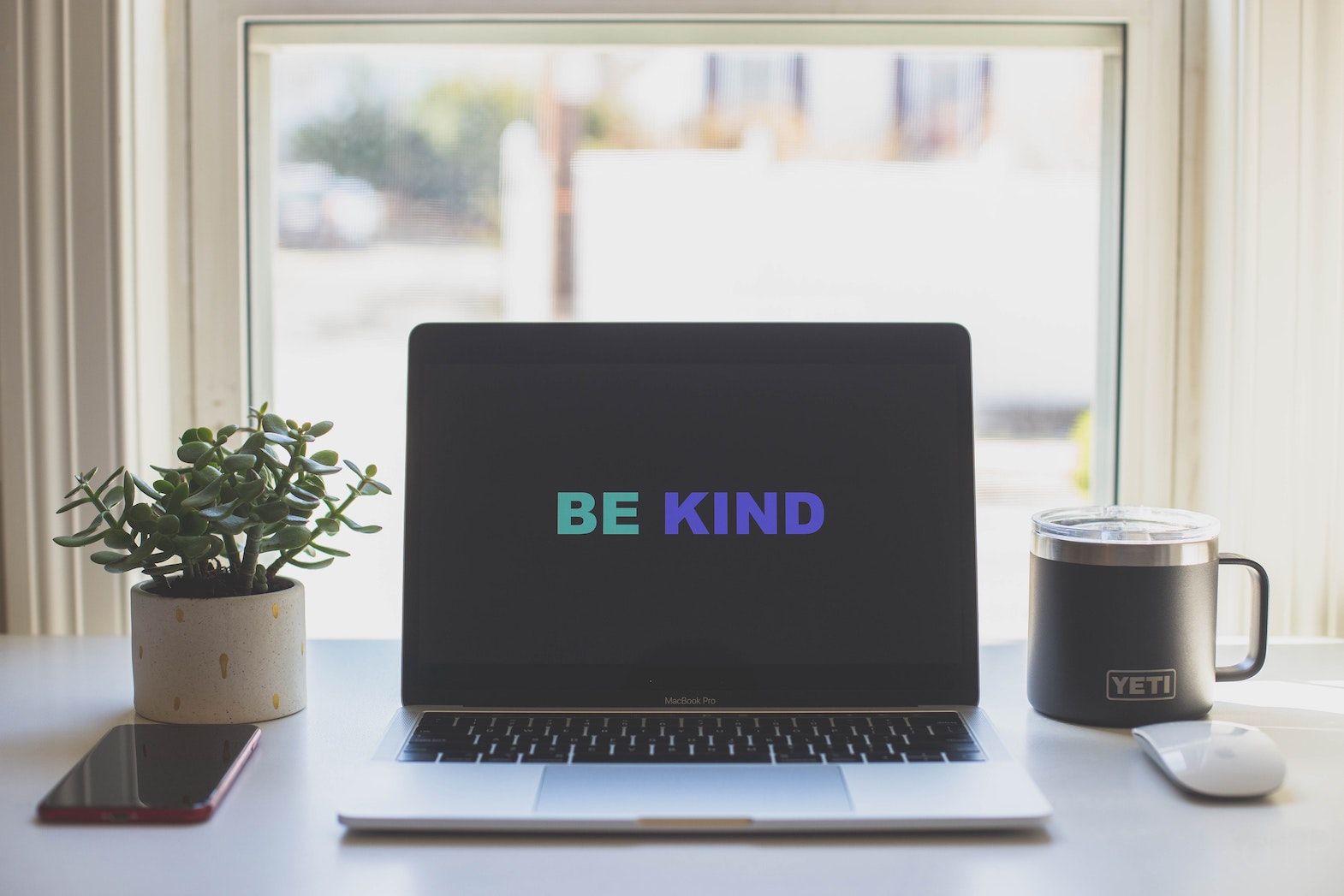Understanding the impact of our words, and how they can perpetuate stigma
Language holds an invisible power over our lives. More than a collection of words and phrases, it is a vehicle for ideas and experiences, and plays a significant role in shaping how we make sense of the world. While we may not always be aware of it, the words we wield can also be weapons. They can inflict harm and cause pain, sometimes without our realising.
Casual ableism is a routine occurrence in our language. It shows up in everyday expressions, throwaway remarks, and off-the-cuff sayings which perpetuate harmful assumptions and misconceptions about disabilities and mental illnesses. With each time we describe a dull event as ‘so depressing,’ a recollection of frustration as ‘giving me PTSD’, or an occasional habit as ‘a bit OCD,’ casual ableism is increasingly normalised within our cultural vernacular.
In her book, On The Offensive, linguist Dr Karen Stollznow highlights how mental health conditions are often exaggerated through colloquial phrases used to discuss undesirable traits or character flaws: an egotistical politician is described as a ‘narcissist’; a friend who worries that other people don’t like them is ‘paranoid’; and a colleague who has difficulty focusing on one task has ‘ADHD’. This metaphorising of mental illness both trivialises complex conditions, and fuels their association with negative qualities.
“My biggest pet peeve is when people say, ‘I’m literally obsessed with__,’” explains Kayla Kaplan, who was diagnosed with OCD, ADHD, a non-verbal learning disorder in her mid-teens, and, more recently, with PTSD. “It paints obsession as a synonym to really liking something and, in my experience, literal obsessions feel horrible. Being unable to get your brain to stop obsessing over something is one of the most helpless feelings, and it shows me that people who misuse the word have no concept of what it actually means.”
Bev Herscovitch, a healthcare and disability advocate, suggests that these throwaway sayings can lead people with mental illnesses to feel unsafe and isolated, potentially preventing them from opening up to others, or seeking support when they need it. Speaking of her own experience as someone diagnosed with bipolar disorder and anxiety, she says “It makes me feel overwhelmed because I realise there’s so much more work to be done in just erasing stigma and raising awareness.”
More troubling than individuals using mental health terminology in this casual way, however, is organisations and businesses treating them as trends. “I’ve often come across merchandise that says: ‘OCD (Obsessive Christmas Disorder or Obsessive Cat Disorder),’” Kayla comments. “To misappropriate a diagnosis for profit is a whole other level of hurt, and it normalises doing so at a massive scale.”
Of course, not everyone who utters these sayings intends to cause harm. More often than not, people simply reproduce ubiquitous turns of phrase without much knowledge about their origins or implications. Our use of language is habitual, rooted in ritual and convention. When we reach into our mental lexicon, searching for the right phrase to describe a thought, experience or idea, we tend not to reflect on the gravity of our words, or consider the beliefs behind what we are saying.
However, even if the intent may not have been to inflict hurt, the impact still matters. As Kayla tells me, these phrases water down the language and descriptors that disabled and mentally ill people have available for sharing their experiences and symptoms. “It makes it harder to advocate for ourselves in neurotypical/non-disabled spaces.”
“People are not metaphors,” Bev adds. “When you use mental illness as a descriptor, you’re erasing the actual experience of people living with these illnesses.”
When we participate in casual ableism, however unintentional, it’s down to us to reflect on how our words can be hurtful and make a pledge to be more careful and considerate moving forwards. Though far from an exhaustive list, here are some sayings we should phase out from our vocabulary.

“I’m really OCD.”
OCD, an abbreviation for obsessive compulsive disorder, is often used to describe someone who is tidy, organised, or conscious about hygiene. Through sayings such as ‘I’m really OCD,’ it is framed as a ‘fun little quirk’, or even a beneficial quality that helps people keep their lives in order. However, this projects a stereotypical image of OCD, and minimises the impact it can have on people’s real lives.
If you’re attempting to highlight someone’s organisational skills, a more accurate term than ‘OCD’ could be ‘neat’, ‘precise’, or ‘systematic’.
“You’re being insane.”
It’s a little known fact that the term ‘insane’ was once a psychiatric label, before being phased out in the 1950s by more scientific terminology. Derived from the Latin ‘insanus’, which meant ‘mentally unsound’, the term reflected the belief of the time that those with mental illnesses had lost their sense of reason.
Today, ‘insane’ can be used in a range of contexts, both positive and negative. Although no longer part of psychiatric discourse though, these senses still draw on negative perceptions of mental illness. Instead of calling something ‘insane’, try ‘exceptional,’ ‘exciting’, or ‘ridiculous’ depending on the context.
“That’s totally crazy.”
Similar to ‘insane’, ‘crazy’ can have both positive and negative connotations. People can use it to mean something is either ‘outrageously good’ or ‘utterly unreasonable’. But the term is also rooted in dehumanising views about mental illness. ‘Crazy’ first appeared during the 17th century to mean ‘diseased’ or ‘sickly’, later coming to refer to being of ‘unsound mind’.
While, arguably, the meaning of ‘crazy’ has expanded enough to overwrite its offensive past, its ableist etymology means that it can still be incredibly hurtful for people with mental illnesses to hear.
“They’re a bit bipolar.”
‘Bipolar’ is often employed to describe something as unpredictable or inconsistent, for example ‘The weather is so bipolar today.’ However, this use reflects an oversimplification of the condition. “Bipolar disorder is not erratic mood swings,” says healthcare and disability advocate Bev. “By casually using bipolar in this context, you’re erasing the nuances of how it’s actually experienced.”
Some replacement terms could include ‘turbulent’, ‘restless’, or ‘indecisive’.
“They’ve got a schizo side.”
The phrase ‘schizo’ has become slang for something or someone who is frenzied or eccentric. This sense perpetuates incredibly stigmatising stereotypes about schizophrenia though. A 2019 study looking at representations of mental health conditions in the UK media found that the terms ‘schizo’ and ‘schizophrenic’ were used as linguistic signatures for violence. This common usage fuels the belief that those who are diagnosed with schizophrenia are frightening and prone to violence.
Besides ‘frenzied’, ‘eccentric’, ‘chaotic ', ‘agitated’, or ‘wild’ are also strong alternatives.
Being more careful and considerate with our words is an important step towards eliminating the shame and stigma surrounding disability and mental illness. Though language may not be the be-all of social change, it is certainly a powerful tool for creating a kinder, more compassionate and understanding world in which people are heard and validated in their experiences.
If you are struggling with your mental health, visit Counselling Directory or speak to a qualified counsellor.


Comments